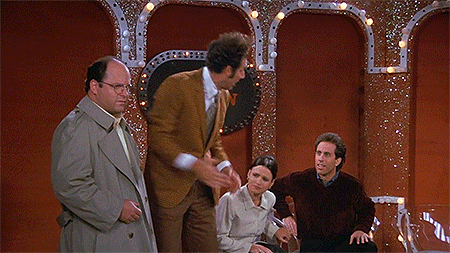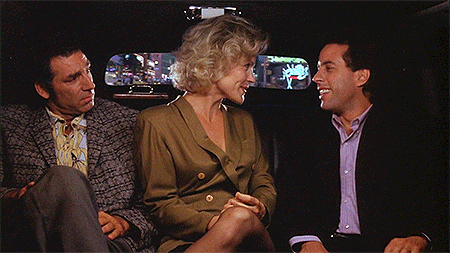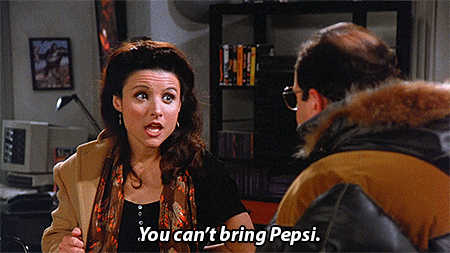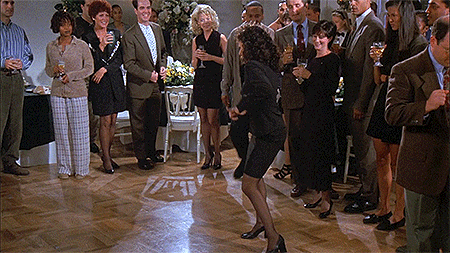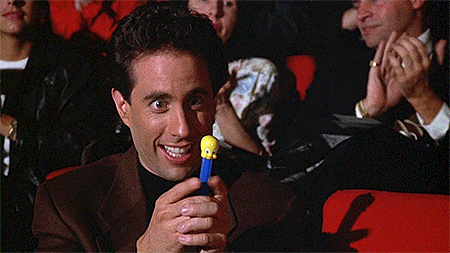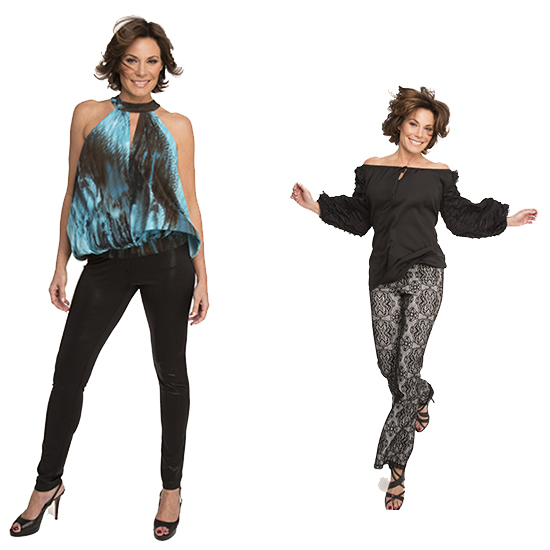"You guys didn't think I was going to be this smart, did you?" was one of the first things the ridiculously talented, warm and generous actor, comedian and singer/musician Lea DeLaria said to us when we met last fall in a Brooklyn diner to interview her for our book on the connection between pop culture and LGBTQ social change. Our response: Actually, we were certain you would be!
DeLaria's entire career is dedicated to social change. Her commitment plays out first and primarily through her comedy. She confronts language, taboo and politics in her standup. Also, as an actor, DeLaria chooses roles that challenge stereotypes and raise visibility. On the activist front -- to give just a few of many examples -- Lea was arrested at the 1993 March on Washington for LGBTQ social change, she has been an outspoken advocate for marriage equality and, most recently, she and some of her cast mates from Orange Is the New Black joined New York's Pride parade last month. DeLaria is an inspired artist, and the powerful connection between her artistic expression and her political sensibility commands attention.
We had a chance to catch up with DeLaria again last week to talk with her about the third season of Orange Is the New Black, her new jazz album House of David, and her sense of hope for the modern queer movement. (Our conversation has been condensed and edited a bit for flow here.)
Bryan and Lisa: Congratulations on everything this year! On the new season of Orange Is the New Black, Big Boo got her backstory (in episode 4) and it was incredible. We'd love to hear you talk about the reaction to the show this season and the reaction to Big Boo's story.
Lea: It's been kind of amazing, frankly. I'm a tad shocked by it because I'm used to being punched in the face for being a butch dyke. So I'm a tad shocked, and also joyous that people's concepts of what it is to be a butch dyke have changed so much. People are hugging me on the street now. I hope this episode will do for the butch world what episode 3, season 1 did for the transgender community: Maybe help people understand a little bit how difficult it is to grow up butch in this society, ostracized not only by society at large but our own community.
The tweets I get from all the young butches, the tweets and the Instagram messages from all over world, just saying, "Thank you, I've seen myself on television." I've never seen myself on television before. I've never seen a really positive portrayal of a butch dyke. And here it is.
It's been a complete party for two weeks since the SCOTUS [marriage equality] decision. Between the stuff with Orange and the SCOTUS decision -- as a queer person, I'm jumping up and down. And hoping to get laid. Hoping to get laid.
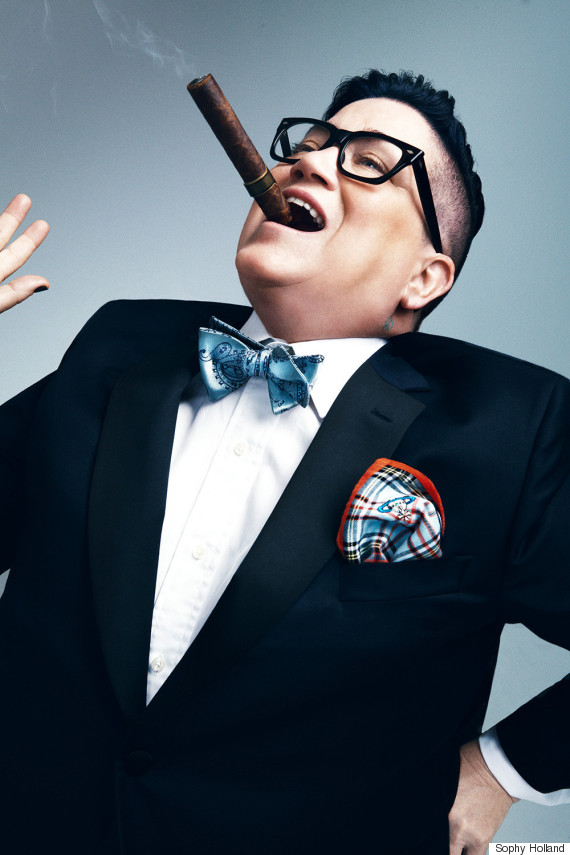
We don't know how we can follow that up, but we're going to try! How do you explain the artistic and the political space that has been created for these Orange episodes?
Well, first of all we've been fighting the good fight for many years and we've made progress. You can see that we have. You know at first we were just politically trying to gain our rights, but recently I feel that we've turned our attention towards winning the hearts and minds of people. And the show that I'm on, Orange Is the New Black, I believe has done more for that than my entire life's work. And that comes from the writers room, it comes from Jenji Kohan, and it comes from the commitment to what they're trying to do in creating an interesting piece of art and media that we want to watch.
So, personally, besides the big long fight that we've been fighting politically, I think there's been a cultural movement that seems to have changed the hearts and minds of people, and I think that's what creates that space.
I hope that it also does that with our own community, too. Once again, I gotta say, I still feel like Boo feels in that episode: that I'm kind of the dirty secret of the queer community. They would rather not see me as visible as I am. So I'm hoping that that episode will do even more than changing the hearts and minds of the heterosexist society at large but will also deal within our own LGBT community.
How does the rejection from within get communicated to you?
From moment one as a performer and just as a human being on the street. I mean there's this great line said to Big Boo in episode 4: "Well, what do you expect when you're the poster child for everything butch?" That's kind of what the community is like.
This is the most distinct way that I can put it: I remember being on stage talking about being butch at a show in Provincetown, and at the end of the show this big monster dyke -- she made me look like a little girl with a pink dress -- walked up to me and she goes, "Goddammit, DeLaria! Why do you gotta portray all lesbians as butch?!" And I looked at her and went, "Do you own a mirror?!" The whole line of other people that were buying CDs and t-shirts burst out laughing when I said it, and she got really horribly offended. But the reality is: Why have such self-loathing for yourself?
It comes from the fact that people in our community are telling you: "Listen, if you could just make yourself more palatable to the masses, you know, it might be easier for us to gain our rights." That's been something that's been going on for a long time. So I always say, it's the middle class, mainstreaming, assimilationist people that are involved with this movement that tend to think that way and portray us in a negative light. You know the ones I'm talking about: The ones that always go to every Gay Pride and talk about how we're like everybody else. Really annoys the shit out me. I love when they say that and then a six-and-a-half foot tall drag queen walks by and opens their butterfly wings.
In episode 4, Boo has the conversation with her dad about refusing to be invisible and that's the hashtag that you've taken up recently: #refusetobeinvisible. Can cultural visibility help make these changes within the community?
Yes, absolutely. I think it is happening. As we accept transgender people and nelly queens, we're starting to turn that around. I really believe that. There's still a lot of those kind of conservative queer people out there, right? But, I personally have felt a renaissance for being butch and nelly. It's happening especially in the younger generation, which I love. I find our youth incredibly active and political and not as complacent as they used to be. Back in the '90s somewhere along the line there was this attitude that kids adopted that was like, "Oh, I'm over everything. Been there done that." This generation out there now, they're fighters, they're warriors, and I take great heart in that.
So there's another line in the episode, where Boo says that her mother used to say that she shouldn't be a salmon, shouldn't always swim upstream. That really resonated with us. Have you ever gotten that message in your career?
Absolutely! Every step of the way in my career. Every step of the way in my career from every individual, be they agents, managers, other performers, producers. Every step of the way in my career I've been told not to be who I am. There was a time where I tried to wear lipstick, because lipstick lesbians were like the thing. And I just thought, you know, "Will it kill me?" And for about maybe a month, if I went on TV or something, I wore lipstick. And I looked at myself one day and I said, "What the fuck is this? Where the fuck did this come from? Why am I giving in on this? It's stupid!" It just felt so false. It felt so false for me to do that. I don't know what else to say. They slap me down and I get back up. That's why Orange Is the New Black is so refreshing. Not only did they not want me to change who I am, they want me to be way more than I am.
You must have heard that salmon message from people that cared deeply about you.
Oh yeah. Well, I definitely heard that from my parents. But here's the thing, and I think it's really important to say this because I think that episode 4 dramatizes a common occurrence in our community: People who are ostracized from their families and never make it up. It is a common occurrence. But let me tell you the other common occurrence that is my experience. At first there was great tension with me and my parents. But my parents listened to me. They didn't want me out of their lives and I didn't want to be out of their lives. And, they learned. They changed their minds and they grew to accept who I was.
I knew not to cross certain lines with them. For example, my mother hated the word "fuck." You could never say it around her. When she passed away I would say it in front of my dad all the time. But there were certain things like that. Like that's a no-brainer: I'm not going to swear around my mom if she doesn't want me to swear around her. But, I'm also not going to wear a dress because she wants me to wear a dress. I'm also not going to wear makeup because she wants me to wear makeup. I'm also not going to come home with the man of my dreams. It's not going to happen, right?
I get that I'm one of the lucky ones. But I just want to let people know, the kids out there, especially, that are dealing with the crap. I know, I dealt with it. But, just to let them know: Things can change, this can work out for you.
In the episode, sadly, Boo's story with her parents doesn't really have a resolution.
I think that's probably the basic difference between Lea DeLaria and Big Boo. Lea DeLaria would have gone into the room, dressed as she was, to say goodbye to her mother. And even Boo says that at the end: "I should have said goodbye to her."
Let's talk a little bit about your new album, House of David, which is such an amazing tribute to David Bowie. What has David Bowie meant to you?
I've had a connection with David Bowie my whole life. To grow up in the '70s like I did in the Midwest, you know, to turn on my television and see David Bowie in a skirt singing "TVC 15." Are you fucking kidding me? It was like heaven! Just the avant-gardeness of it combined with the punkiness of it combined with the, you know, guy in a dress queer thing that was going on. All of that. He completely spoke to me. In fact, he probably was one of the first people to teach me to be exactly who I am and not to change for anybody, including people in the industry. He was one of the first examples of that, I think, creating what you want to create and following your own path. So he's always spoken to me in that respect. I think a lot of it has to do with the fact that I grew up in this tiny little town in the Midwest. We'd never seen anything like that, and it was awesome!
This particular project of mine has been a pet project for about four years. I've been working on the arrangements for a very long time, choosing exactly what tunes to do, which ones spoke to me. You can do almost every one of his tunes in the language of jazz. Finally we whittled it down to the twelve that we ended up. I'm incredibly pleased with the results. I think the record itself looks amazing. The design, photography, the art direction -- it looks amazing. Without a doubt, the sound of it, it's the best CD I've ever put out. This'll be now my sixth CD. I'm just really excited that people seem to be downloading it. And, I've got my record release concert on the 18th of July at The Cutting Room. It's going to be a big show. So I hope people show up.
Can you talk a little bit more about how you think about the connection between artistic work and social change? It's something that's so central to you and your career.
Every major political movement always had a kind of cultural component. You can talk about comedy here. It's one of the reasons why I love comedy so much. We can go back in time and, you know, the feminist movement had Lily Tomlin and many others. Before that we have the hippie movement that gave us people like George Carlin and Lenny Bruce (although Lenny is more of a Beatnik). And, you know, what happened in World War Two to Jews gave us the rise of the Borscht Belt comics. And then we have to think about the acoustic guitar playing with the folk movement craze and again the hippie thing and the psychedelic music that came out this is as all part of the cultural movements involved with political concepts that have literally changed the world. So why wouldn't we as gay people have this, right? That sort of artistic endeavor with a minds eye towards creating change has proven to work very well. And that's why we look to our "dykons." There's a difference between a "dykon" and a "celesbian." I always tell my fiancée that I'm the dykon and she's the celesbian!
In other news of this busy past month: Pride and the SCOTUS marriage equality decision!
Two things that happened at Gay Pride spoke volumes to me. So I'm in my Gay Pride cart and we turn on to 8th Street there on our way down to Christopher Street and we go by a balcony and Larry Kramer is standing in the balcony. I was doing the Huff Post Instagram, so I took a picture of me pointing at him. But you know when I saw him I waved to him because Larry Kramer and I have known each other for a ridiculous amount of years -- since the late '80s. I waved to him and he waved back and honestly we both started to tear up, because it was such a big thing. I can assure you that neither Larry nor I ever thought that we would achieve what we've achieved in our lifetimes.
I never thought I'd see it in my lifetime. I never thought that what has happened in the last month would happen. And by that I mean everything I'm talking about Orange Is the New Black, I'm talking about the SCOTUS decision. I'm looking at a SAG award. I'm sitting here looking at a SAG award on my mantel, you know, and I'm me! Do you know what I mean? There has been terrific change in people, in the way people view us.
But then, on the same token, when I look at my posts on Huffington Post when I took over their Instagram, the hatred that was spewed at me and at gay people in general.
What did the SCOTUS decision mean to you?
I think we're incredibly empowered by the SCOTUS decision. Even the most apathetic gay, queer person out there feels empowered by this decision. I mean look at the attendance at Gay Pride in New York City. Look at what happened as soon as the decision came down. Look what happened on Christopher Street. Every gay person within a 300-mile radius came to Christopher Street at eleven o'clock in the morning. They left their jobs. They left, you know, because everybody just needed to be by Stonewall. We all just needed to be by Stonewall. I did it too. That decision has empowered us in a humongous way.
I had no expectation of gay marriage. I didn't expect that at all to happen in my lifetime. It wasn't until the last few years that I realized it was achievable. But I always envisioned that for us.
Unfortunately, humans are an enigma. You know you're never quite sure what a human's going to do. It's our job to remain close and tight as a community and stick together. If we do that, we win. We beat them every time.
-- This feed and its contents are the property of The Huffington Post, and use is subject to our terms. It may be used for personal consumption, but may not be distributed on a website.



